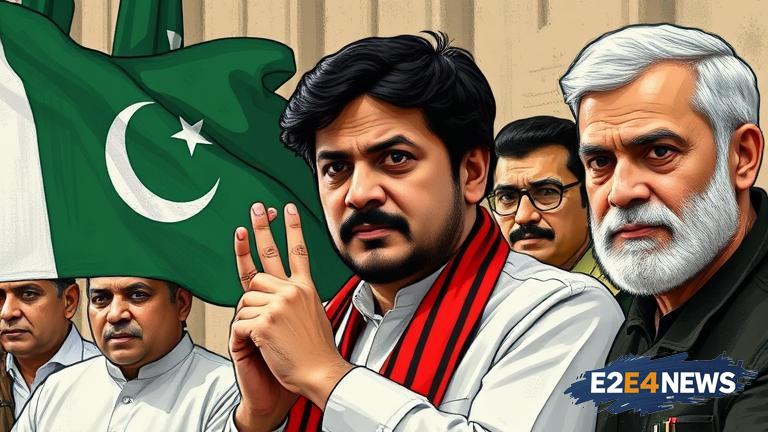In a move that has been widely condemned by human rights groups and opposition parties, a Pakistani anti-terror court has sentenced 100 leaders of the Pakistan Tehreek-e-Insaf (PTI) party to prison terms. The court’s decision has been seen as a major escalation in the government’s crackdown on the opposition party, which has been critical of the ruling Pakistan Muslim League-Nawaz (PML-N) party. The PTI leaders were arrested and charged under anti-terrorism laws for their alleged involvement in violent protests and clashes with police. The protests were sparked by the government’s decision to arrest PTI chairman Imran Khan, who has been a vocal critic of the government and has accused it of corruption and mismanagement. The government has denied any wrongdoing and has accused the PTI of trying to destabilize the country. The crackdown on the PTI has been widely criticized by human rights groups, who have accused the government of using anti-terrorism laws to silence opposition voices. The government has also been accused of using excessive force against protesters, with many reports of police brutality and violence. The situation has been further complicated by the fact that the PTI has a significant following in Pakistan, and many of its supporters have taken to the streets to protest the government’s actions. The government has responded by imposing strict security measures, including curfews and restrictions on movement. The international community has also expressed concern over the situation, with many countries calling for calm and restraint. The United States, the European Union, and other major powers have all issued statements urging the government to respect human rights and the rule of law. Despite the criticism, the government has shown no signs of backing down, and the crackdown on the PTI is likely to continue. The PTI has vowed to continue its protests and has called for the government to release its leaders and activists. The situation remains tense, with many fearing that the situation could escalate into further violence. The government’s actions have also been criticized by many in Pakistan, who see the crackdown as an attempt to silence opposition voices and consolidate power. The PTI has accused the government of trying to undermine democracy and the rule of law, and has called for the international community to intervene. The situation has also had significant implications for Pakistan’s relations with other countries, with many nations expressing concern over the government’s actions. The government has responded by accusing other countries of interfering in Pakistan’s internal affairs, and has vowed to defend its sovereignty. The situation remains complex and multifaceted, with many different factors at play. The government’s crackdown on the PTI is likely to have significant implications for Pakistan’s future, and the international community will be watching the situation closely. The PTI has also accused the government of trying to divide the country and create chaos, and has called for unity and calm. The government has responded by accusing the PTI of trying to create chaos and instability, and has vowed to take all necessary measures to maintain law and order. The situation has also had significant implications for Pakistan’s economy, with many businesses and investors expressing concern over the government’s actions. The government has responded by accusing the PTI of trying to undermine the economy, and has vowed to take all necessary measures to protect it. The situation remains tense, with many fearing that the situation could escalate into further violence. The government’s actions have also been criticized by many in Pakistan, who see the crackdown as an attempt to silence opposition voices and consolidate power. The PTI has accused the government of trying to undermine democracy and the rule of law, and has called for the international community to intervene.





